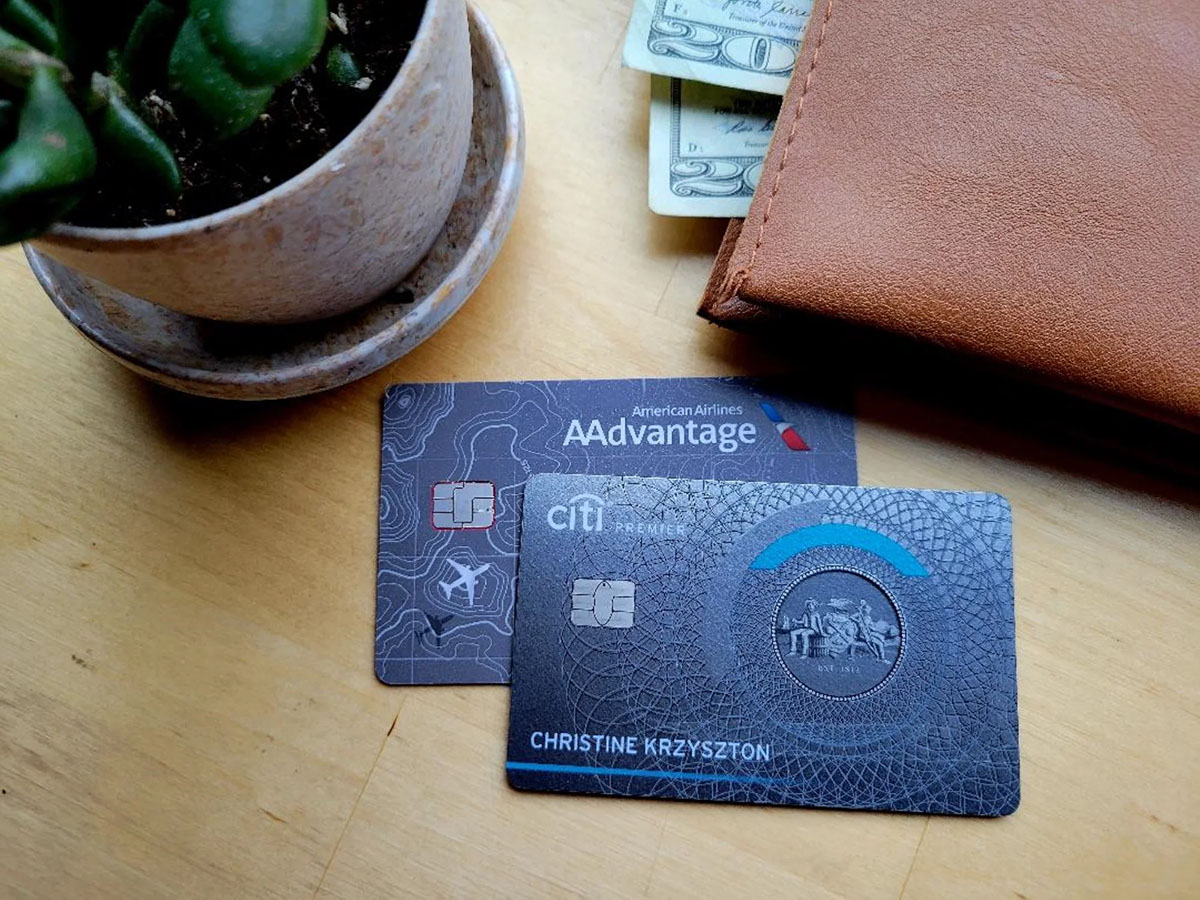Home>Finance>How Often Does Credit One Increase Your Credit Limit


Finance
How Often Does Credit One Increase Your Credit Limit
Modified: January 15, 2024
Discover how often Credit One increases your credit limit and take control of your finances. Learn more about their credit limit increase policies and how it can benefit you.
(Many of the links in this article redirect to a specific reviewed product. Your purchase of these products through affiliate links helps to generate commission for LiveWell, at no extra cost. Learn more)
Table of Contents
Introduction
Welcome to the world of credit limits! If you’re a credit card holder, you might be familiar with the concept of a credit limit – the maximum amount of money you can charge on your credit card. Credit limits play a crucial role in managing your finances and building a good credit score.
One popular credit card provider is Credit One. With their range of credit card offerings, you might wonder how often they increase your credit limit. In this article, we’ll delve into the details of credit limits, how they work with Credit One, and the factors that influence credit limit increases. We’ll also provide some strategies to maximize your chances of getting a credit limit increase.
Understanding credit limits is essential for wise financial planning. While credit cards can offer convenience and flexibility, it’s important to use them responsibly to avoid excessive debt. By staying informed about your credit limits and the processes involved in increasing them, you can make better decisions that align with your financial goals.
So, without further ado, let’s embark on a journey to explore the intriguing realm of credit limits and uncover the frequency of credit limit increases offered by Credit One.
Understanding Credit Limits
Before we delve into the specifics of how Credit One handles credit limit increases, let’s first establish a solid understanding of credit limits in general.
A credit limit is the maximum amount of money that you can charge to your credit card. It determines how much you can borrow from the credit card issuer. When you apply for a credit card, the card issuer assesses various factors such as your income, credit history, and creditworthiness to determine the initial credit limit they will grant you.
Once you are approved for a credit card, your credit limit is set and governs how much you can spend. It’s important to note that exceeding your credit limit can result in penalties, increased interest rates, and negative impacts on your credit score.
Credit limits are not fixed forever. Card issuers periodically review the creditworthiness of their customers, and based on various factors, they may choose to increase or decrease the credit limit. A higher credit limit provides you with more purchasing power and flexibility, while a lower credit limit may require more careful management of your expenses.
It’s crucial to have a clear understanding of your credit limit and to monitor your spending to ensure you stay within your limit. Staying below your credit limit and making consistent, timely payments can positively impact your credit score and potentially increase your chances of qualifying for higher credit limits in the future.
Now that we have a solid foundation of what credit limits are, let’s dig deeper into how Credit One handles credit limit increases.
Credit One and Credit Limit Increases
When it comes to credit limit increases, Credit One takes a proactive approach in helping their customers. They understand the importance of credit limits in managing finances and building creditworthiness. While credit limit increases are not guaranteed, Credit One provides opportunities for eligible cardholders to request an increase.
Credit One evaluates several factors to determine whether you qualify for a credit limit increase. These factors include your payment history, credit utilization ratio, income, and overall creditworthiness. By maintaining a positive payment history, keeping your credit utilization ratio low, and demonstrating responsible financial behavior, you are more likely to be considered for a credit limit increase.
It’s worth noting that credit limit increases are typically not automatic and require an active request from the cardholder. This gives you control over your credit limit and allows you to assess your financial situation before deciding to request an increase.
Additionally, Credit One offers frequent credit line reviews to assess their cardholders’ eligibility for credit limit increases. This is done to adapt to changes in their customers’ financial situations and reward responsible credit usage. However, keep in mind that the frequency of these reviews may vary and is at the discretion of Credit One.
It’s important to remember that each credit card issuer has its own policies and guidelines regarding credit limit increases. While Credit One strives to support their customers in achieving their financial goals, the final decision ultimately rests with them. Be prepared to provide documentation such as income verification if requested during the credit limit increase request process.
Now that we understand Credit One’s approach to credit limit increases, let’s explore the factors that influence these increases.
Factors Influencing Credit Limit Increases
Several key factors influence whether Credit One will grant you a credit limit increase. Understanding these factors can help you assess your eligibility and improve your chances of receiving a higher credit limit.
- Payment History: One of the most critical factors that Credit One considers is your payment history. Consistently making on-time payments and staying current on your credit card payments demonstrates responsible financial behavior and increases the likelihood of a credit limit increase.
- Credit Utilization Ratio: Your credit utilization ratio is the percentage of your available credit that you are currently using. A lower credit utilization ratio indicates that you are not overly reliant on credit and can manage your finances responsibly. Keeping your credit utilization ratio low can positively impact your creditworthiness and increase your chances of qualifying for a credit limit increase.
- Income: Your income plays a significant role in determining your credit limit increase eligibility. A higher income indicates a greater ability to manage and repay credit. Thus, having a stable and higher income can improve your chances of receiving a credit limit increase.
- Creditworthiness: Credit One considers your overall creditworthiness, taking into account your credit score, credit history, and any negative marks such as delinquencies or bankruptcies. Maintaining a good credit score and demonstrating responsible credit management can boost your eligibility for a credit limit increase.
- Time since last credit limit increase: If you have recently received a credit limit increase from Credit One, they may require some time to elapse before considering another increase. This allows them to evaluate your credit behavior and financial stability over a reasonable period.
- Requesting a credit limit increase: Taking the initiative to request a credit limit increase can also influence Credit One’s decision. It demonstrates your commitment to responsible credit usage and signals that you are actively managing your finances. However, remember that it’s wise to request a credit limit increase only when necessary, as excessive requests may have a negative impact on your creditworthiness.
By understanding and working on these factors, you can enhance your eligibility for a credit limit increase. Next, let’s explore how often Credit One increases credit limits for their customers.
How Often Does Credit One Increase Credit Limits?
The frequency of credit limit increases offered by Credit One may vary depending on several factors, including your credit history, payment behavior, and overall creditworthiness. While there is no specific timeframe mentioned by Credit One for credit limit increases, they do offer frequent credit line reviews to assess their cardholders’ eligibility for an increase.
Credit One understands that as your financial situation changes, your credit limit needs may evolve. Therefore, they actively monitor the creditworthiness of their customers and periodically review their accounts to determine if a credit limit increase is warranted.
However, it’s important to note that credit limit increases are not guaranteed and depend on individual circumstances. Credit One evaluates each request on a case-by-case basis, taking into account various factors beyond their customers’ control, such as the economic climate and their own risk management strategies.
If you believe that you are ready for a credit limit increase, it is recommended to regularly review your account and assess your creditworthiness. If you meet the necessary criteria, you can submit a request for a credit limit increase. Remember to request an increase only when necessary and avoid excessive requests, as too many requests within a short period can negatively impact your creditworthiness.
It’s essential to maintain a positive payment history, keep your credit utilization low, and demonstrate responsible credit management to increase your chances of a credit limit increase. By consistently practicing good financial habits, you may be rewarded with credit limit increases over time.
In the next section, we’ll discuss some strategies that can help you maximize your chances of obtaining a credit limit increase from Credit One.
Strategies for Getting a Credit Limit Increase from Credit One
If you are looking to increase your credit limit with Credit One, there are several strategies you can employ to improve your chances of success. These strategies focus on demonstrating responsible credit behavior and maintaining a positive financial profile.
- Pay your bills on time: Consistently making on-time payments is vital to your creditworthiness. Late or missed payments can negatively impact your credit score and decrease your chances of getting a credit limit increase. Set up automatic payments or reminders to ensure you never miss a payment deadline.
- Keep your credit utilization low: Aim to keep your credit utilization ratio below 30% of your available credit. A lower credit utilization ratio shows that you are using your credit responsibly and can handle a higher credit limit.
- Monitor your credit score: Regularly check your credit score and credit reports to ensure accuracy and identify areas of improvement. By addressing any errors and taking steps to improve your credit score, you increase your chances of qualifying for a credit limit increase.
- Request a credit limit increase: If you believe you are ready for a credit limit increase, don’t hesitate to submit a request to Credit One. Ensure that your request is supported by strong payment history, low credit utilization, and an overall positive credit profile.
- Show consistent income: Having a stable and increasing income can positively impact your creditworthiness. Providing proof of income can demonstrate to Credit One that you can responsibly manage a higher credit limit.
- Build a positive relationship with Credit One: Maintain open communication with Credit One and keep them updated on any positive changes in your financial situation. A good relationship and history with the credit card issuer can improve your chances of receiving a credit limit increase.
Remember, credit limit increases are not guaranteed, and Credit One evaluates each request on an individual basis. It’s important to be patient and continue practicing responsible credit habits. Over time, if you demonstrate consistent financial responsibility and meet the necessary criteria, you may be rewarded with a credit limit increase.
Next, let’s explore the steps involved in requesting a credit limit increase with Credit One.
Steps to Request a Credit Limit Increase with Credit One
If you feel that you are ready for a credit limit increase with Credit One, you can follow these steps to submit your request:
- Review your account: Assess your current financial situation and review your Credit One account. Make sure your payment history is strong, your credit utilization is low, and you meet the eligibility criteria for a credit limit increase.
- Contact Credit One: Reach out to Credit One’s customer service department either by phone or through their online communication portal. Inquire about their credit limit increase request process and the documentation they may require.
- Prepare necessary documents: Credit One may ask for documentation to support your credit limit increase request. These documents may include income verification, proof of employment, or updated financial statements. Gather these documents beforehand to streamline the process.
- Submit your request: Follow the instructions provided by Credit One and submit your credit limit increase request. Provide any required documentation and ensure that your request is supported by strong payment history, low credit utilization, and a positive credit profile.
- Wait for a response: After submitting your request, Credit One will evaluate your request and make a decision based on their internal processes. The evaluation period may vary, so be patient and wait for their response.
- Monitor your account: While waiting for a response, continue to monitor your Credit One account regularly. Keep track of any updates, communications, or changes in your credit limit.
- Follow up if necessary: If you haven’t received a response within a reasonable timeframe or if you have any questions or concerns, don’t hesitate to follow up with Credit One’s customer service department.
Remember, the decision to grant a credit limit increase rests solely with Credit One. It’s important to maintain open communication, be patient, and continue practicing responsible credit habits while awaiting a response.
Now that you are equipped with the steps to request a credit limit increase, let’s wrap up our exploration of Credit One’s credit limit increase process.
Conclusion
Credit limits are an integral part of managing credit cards and building a strong financial foundation. When it comes to Credit One, credit limit increases are not only possible but actively encouraged for eligible cardholders. By understanding the factors that influence credit limit increases, implementing strategies to improve your creditworthiness, and following the necessary steps to request an increase, you can increase your chances of receiving a higher credit limit.
While there is no specific timeframe mentioned for credit limit increases with Credit One, they regularly review their cardholders’ accounts and consider various factors such as payment history, credit utilization ratio, income, and overall creditworthiness. Taking proactive steps to maintain a positive payment history, keep your credit utilization low, and demonstrate responsible financial behavior can only work in your favor.
Remember, credit limit increases are not guaranteed and depend on individual circumstances. It’s essential to regularly monitor your credit profile, review your account, and assess your eligibility before submitting a credit limit increase request. By building a good relationship with Credit One, staying patient, and practicing responsible credit habits, you increase your chances of receiving a credit limit increase.
Keep in mind that credit limits are not a license to overspend. It’s important to use your credit wisely, keep track of your expenses, and stay within your means. By managing your credit properly and establishing a good credit history, you can continue to build a solid financial future.
In conclusion, while the frequency of credit limit increases offered by Credit One may vary, they provide opportunities for eligible cardholders to request an increase. By understanding the credit limit increase process, implementing strategies, and maintaining responsible financial habits, you can maximize your chances of receiving a credit limit increase and continue on your path to financial success.














